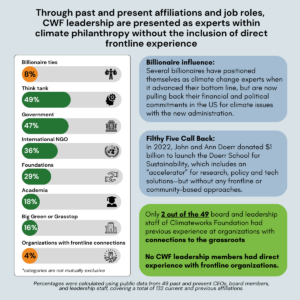On Nov. 1-2, the Executives’ Alliance for Boys and Men of Color convened its foundation CEO members and other community stakeholders to explore the idea that boys and men of color (BMOC) are the architects of their own liberation. The leaders of the convening – mostly young men of color who are organizing for systems change in their communities – repeatedly reminded us that they are not helpless souls who need saving but human beings with agency and vision that need to be respected if we are all to be free.
Executives’ Alliance applied the wisdom of these young men to its practices. Its members provided $3 million in seed funding last year for the National Youth Alliance for Boys and Men of Color, which then re-granted funds to grassroots groups and local youth campaigns. Equally as important, several of the grassroots leaders are key partners and advisers to Executives’ Alliance so that operations and philanthropic strategy more accurately reflect their lived experiences. These young leaders, as well as other men of color who contributed to the convening, had clear advice for philanthropy and the role our sector plays in supporting the liberation of BMOC.
The closing plenary invited grassroots leaders to explore the nuances of the popular movement chant by Assata Shakur:
It is our duty to fight for our freedom.
It is our duty to win.
We must love each other and support each other.
We have nothing to lose but our chains.
Calvin Williams, senior associate at Movement Strategy Center and coordinator of the National Youth Alliance, moderated an unapologetic and clear call to action among current and former organizers about how funders can genuinely contribute to freeing us all from our chains.
1. Fund the stuff. Jamal Jones, co-executive director of Baltimore Algebra Project and National Youth Alliance reminded funders that they have the money. He is tired of hearing how work that makes a difference doesn’t fit into a portfolio or priority area. David Celedon, also with the National Youth Alliance and with Resilience OC/Sons & Brothers Funders agreed with Jamal. David mentioned that some of his partners who have low incomes use their personal resources to advance their work. He noted the hypocrisy of funders being able to host an event in a four-star hotel in one of America’s most expensive cities but not being able to find ways to fund grassroots work.
2. Protect grassroots leaders. Jamal encouraged funders to read the literature their grantees are reading. Once funders understand the frameworks that influence grassroots work they can protect the people looking to change the system instead of protecting the systems.
3. Take risks, and fund healing. Greg Hodge, an organizer and owner of Khepera Consulting, reminded philanthropy that racism is traumatic. Organizers and community leaders have wisdom that heals such trauma. Funders need to support those practices, even if it seems risky, because they are key to liberation.
4. Flip the table. Funders tend to be afraid of supporting 501(c)4 work, but Lateefah Simon, CEO of Akonadi Foundation, wants philanthropy to anoint communities to take back local governments. Government is the largest funder, and unless we support those who are willing to flip the table and reclaim power in their communities, grant dollars will not be affective.
Those in formal political leadership at the convening also had directives for philanthropy. Marc Philpart, senior director at PolicyLink, moderated a panel of politicians who are men of color, equally committed to liberation.
1. Do advocacy. Washington State Sen. John McCoy explained the importance of educating people in positions of power about the realities of BMOC, the scope of inequity and the kind of changes that have impact. Every time a new leader takes office or acquires power, philanthropy should educate them about the realities in our communities.
2. Build coalitions. While Sen. McCoy called for advocacy, Dr. Edwin M. Quezada, superintendent of schools in Yonkers, New York, emphasized that we don’t need new data about disparities: “The data is clear.” He values assistance in building coalitions and cultivating more leaders of color. Philanthropy can develop the necessary diverse and broad coalitions to advance successful strategies more easily than politicians can.
3. Teach people how to build financial resources. Our sector has knowledge about investments and wealth management that are assets to those cultivating liberation for BMOC. California Assemblymember Reginald Byron Jones-Sawyer Sr. wants philanthropy to teach others about how to start endowments whose expressed purpose is to support BMOC.
The leaders at the Executives’ Alliance general meeting were clear: Philanthropy has a role to play in our liberation. Which of these steps is your foundation willing to take? Whatever the risk may be, we have nothing to lose but our chains.
Jeanné Isler is VP and Chief Engagement Officer at NCRP, and is a big advocate of liberated spaces. To learn more about the most recent Executives’ Alliance general meeting, follow #OURLiberation on Twitter.

































































































































































































































































































































































































































